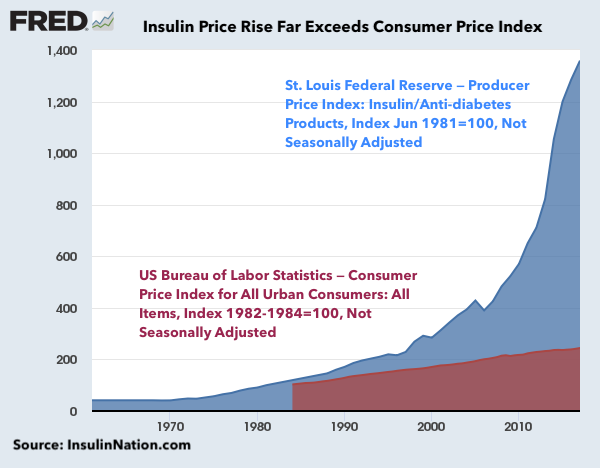You are vulnerable while hospitalized
Hospitals often use outdated practices for their diabetes patients despite a large body of knowledge about better glucose management

Hospitals often use outdated care practices despite a large body of knowledge about the importance of glycemic management in hospitalized patients, both in intensive care units (ICUs) and in noncritical care settings. Levels of glycemia directly impact patient outcomes, hospital length of stay (LOS) & costs. New therapeutics and technology are widely available, but inpatient glycemic care often lags substantially behind best practices and ADA recommendations.
Do consumers have to revolt against old-fashioned blood glucose care? Protect yourself with this Glycemic Care Hospital Checklist!
Major hospital systems are investing in glycemic optimization programs. However, clinical inertia in most hospitals often fails to initiate or intensify therapy when it is clinically indicated in the inpatient management and at the time of hospital discharge. Major organizations are trying to encourage better practices.
- The Joint Commission has established an Advanced Disease-Specific Care certification program that ensures better inpatient diabetes care (website), but most hospitals don’t yet feel pressure to comply.
- CMS is issuing Quality Metrics for Diabetes Care that may force better inpatient care. In particular, they are testing two diabetes inpatient quality measures to be implemented — one for low blood sugar (hypoglycemia) and one is for high blood sugar (hyperglycemia).
You should expect and demand this level of care!
Best Practice Recommendations:
The current ADA clinical practice recommendations for Standards of Medical Care of Diabetes within the hospital include (ADA Source):
- Eliminate ‘sliding scale’ as the main insulin therapy for general medical/surgical non-critical care
- Use Basal-Bolus-Correction Therapy primarily on general med-surgical wards — with Insulin administered using validated written or computerized protocols that allow for predefined adjustments in the insulin dosage based on glycemic fluctuations.
- Use MNT (medical nutrition therapy) and CHO (carbohydrate) Insulin Dosing
- Prevent, document, and track hypoglycemia episodes
- Get A1C on all admitted patients with hyperglycemia, if one has not been drawn within three months
- Maintain glucose range of 140-180 mg/dL for most patients and some patients, even tighter ranges
- Obtain and use reliable glucose data metrics and measurement
- Provide individualized discharge plan for each diabetes patient
- Involve a multidisciplinary team to help manage diabetes (nursing, nutrition, pharmacy, behavioral health, physicians, etc.)
Checklist to Choose Your Hospital
If my loved one with diabetes needed to be in the hospital, I would want to know:
- Does the hospital follow the ADA Diabetes Care Standards for Inpatient Diabetes Care?
- Has the hospital achieved the Joint Commission’s Certificate of Distinction for Inpatient Diabetes Care
- Is there a multidisciplinary diabetes care team available to assist my physician in my care?
- Do they have a consulting endocrinologist/ will they consult my/my family member’s endocrinologist?
- How often will they check blood glucose levels?
- What target range/ranges of blood glucose do they try to maintain for patients?
- Do they have a standard hypoglycemia treatment protocol?
- What are their rates of hypoglycemia? Of severe hypoglycemia?
- What do they do to prevent hypoglycemia?
- What are their rates of hyperglycemia (blood glucose above 180 mg/dL)?
- Do they use IV insulin in critical care?
- Do they use basal, bolus, correctional therapy in non-critical care?
- Are they still using primarily sliding scale insulin as the sole therapy for the majority of patients?
- Do they use technology that assists with correct and individualized insulin dosing that helps keep the person in the target range of blood glucose?
- Do the nurses count carbs or input the amount of carbohydrates patients eat for mealtime insulin doing?
- How do they educate newly diagnosed patients? Do they have a certified diabetes educator on staff?
- What do they do to prepare patients for discharge home?
- Has the hospital achieved ADA or AADE recognition for their outpatient diabetes education program?
Do you have a story to share about your hospitalization experiences? If so, please contact editor@insulinnation.com







